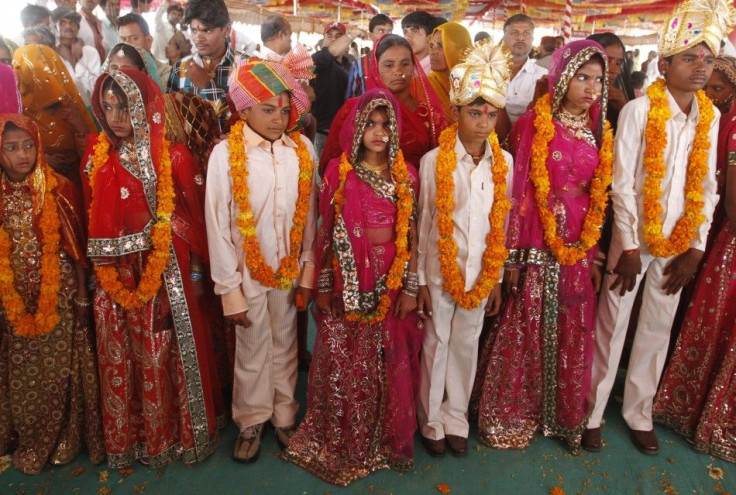13, Married, And Pregnant: A Call To End Child Marriage At The UN’S International Day Of The Girl

When his older sister turned 15, Muhammed Shahzad Khan’s father arranged for the girl to be married. The family lived in rural Pakistan, and Muhammed, who was 12 at the time, decided to protest the decision. He went on a hunger strike. Then his brothers and sisters joined him. Then his mother also stopped eating.
It took one day before his father caved and canceled the marriage. The family moved to Lahore, where two of his sisters eventually married men their own age, and his younger sister is now in college, the first person in the family to do so.
Shahzad Khan, now 27, is now the executive director of the Chanan Development Association, a youth empowerment group in Pakistan. Speaking to a group of fellow activists today on Google Plus for the U.N.’s first International Day of the Girl, Shahzad pointed out that his story is the exception, not the rule, when it comes to what happens to girls in developing countries.
International Day of The Girl, meant to be a “global observance to highlight the importance of empowering girls and ensuring their human rights,” U.N. Secretary-General Ban Ki-Moon said in a statement.
The focus is on child marriage, an issue that affects 10 million girls under the age of 18 every year. That makes one in three women in the developing world between the ages of 20 and 24 who were married before they were 18, the U.N. said. Despite the Disney fantasy of meeting your older, wealthy Prince Charming at age 16, the U.N. spent the day highlighting the dangers of early marriage, and particularly early pregnancy, can pose for women in developing countries.
UNICEF estimates currently 23 million girls worldwide were married before the age of 15, and that girls between 10 and 14 are five times more likely than women 20 to 24 to die in pregnancy and childbirth.
At the Google Plus conference on Thursday, UNICEF representative Anju Malhatora told the chat participants that “getting married as a child makes it practically impossible for a girl to be empowered.”
“Girls are second class to their brothers in so many countries,” said Mary Robinson, the former president of Ireland and a representative from the Elders, Nelson Mandela’s independent think tank, told the group. The issue of child marriage is complicated, Robinson said, because it’s so steeped in tradition, and marriage is such a public act.
Robinson also pointed out that despite laws in countries like Ethiopia, where the legal marriage age is 18, and in India, where it’s 21, the implementation of the laws is the problem.
“I saw girls in school pleading with their parents to let them stay in school,” she said.
But often the traditions are so engrained in the community that parents think marriage is the best option for their girls.
Christy Turlington Burns, the founder of Every Mother Counts, added that 60 percent of maternal deaths occur in girls between the ages of 15 and 19. Turlington Burns also said that even today, when she travels and meets young mothers, they will lie about their age to Westerners. “A lot of them know that 18 is that age, that defining age. And you know that they’re actually not 18.”
“It’s unfortunate that in our country [Pakistan], we have laws that say a girl should attain the age of 16 to get married,” Shahzad said. “Our laws are in contradiction with international treaties we’ve signed.”
All the activists agreed that educating the community and keeping girls in schools was the best way to end the practice by 2030, the U.N.’s goal. Writing in the Huffington Post on Thursday, Archbishop Desmond Tutu and Ela Bhatt, an Indian activist and co-founder with Tutu of Girls Not Brides, said that keeping girls in school means they will earn more money and have healthier lives down the road.
Malhotra, during the Google Plus chat, also pointed out that, “Keep teen girls in school, they’re seen as children. You take them out of school; people see them as ready to be married. Nothing is more powerful than keeping girls in school.”
The U.N.'s focus on the girl comes at a serendipitous moment, given the global attention focused on Malala Yousafzai, the 14-year-old Pakistani girl who was shot by Taliban gunmen for advocating education among females.
© Copyright IBTimes 2024. All rights reserved.












